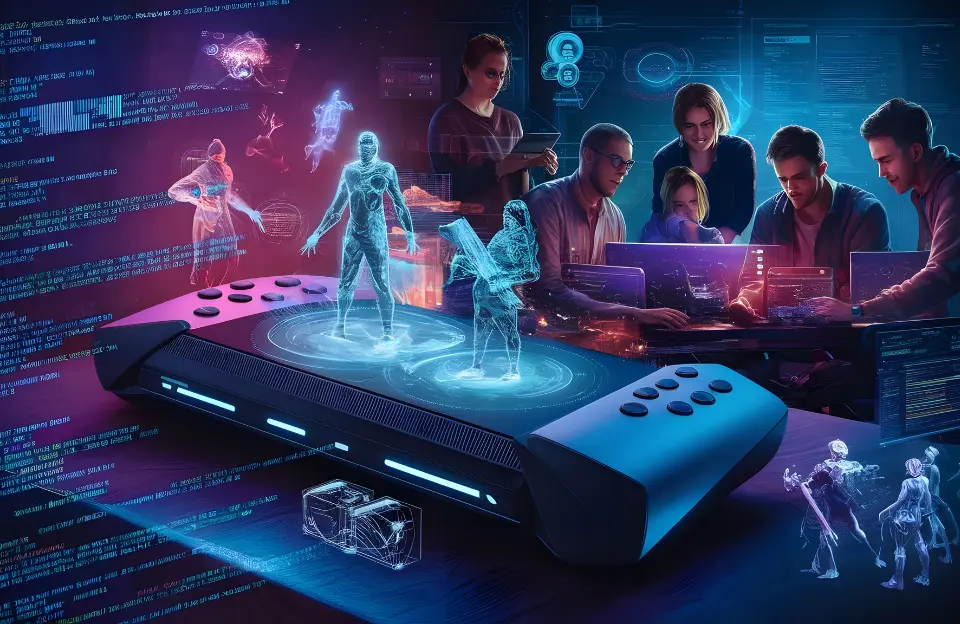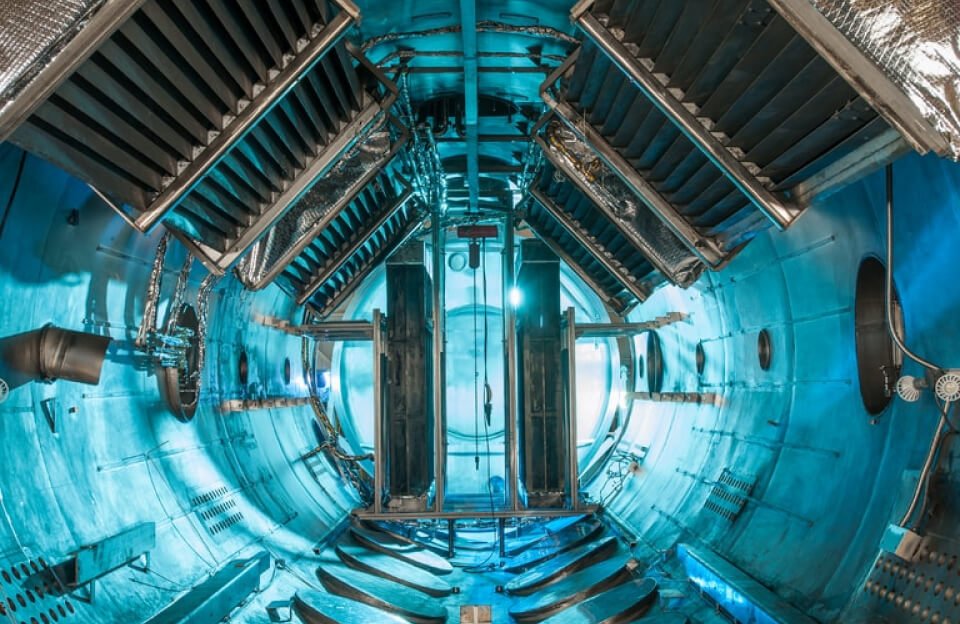Explore how AI transforms gaming: from procedural generation to adaptive NPCs. Discover its impact on development, graphics, and player experience. Learn about future trends and ethical considerations in AI-driven game creation.
Artificial intelligence AI is one of the most important factors changing the gaming business which is changing very quickly. In addition to changing how games are played AI technologies are also changing how they are made experienced and thought of. These new ideas like random content creation and adaptable AI systems have made games more complicated and immersive than ever before.
Foundations Of AI In Gaming
In video games artificial intelligence AI means making computer programs act like real people. Initially AI in games was mainly used to make opponents hard for players to beat. AI has grown over time to include more functions such as random content generation PCG adaptable AI for changing the difficulty of games and the ability to make decisions in real time. As a result of these improvements games are now much more realistic and complicated with more engaging and changeable settings.
AI Techniques Revolutionizing Game Development
1. Procedural Content Generation (PCG)
Using algorithms procedural content generation PCG makes game material like levels, locations and tasks appear on the fly. This method not only cuts down on development time but also makes the game playable in endless ways which keeps players interested. PCG is shown by games like Minecraft that give players huge different worlds to discover so that no two experiences are the same. In the same way No Man Sky uses PCG to create whole worlds full of different planets, plants and animals giving players a never ending supply of ways to explore and discover new things.
2. Behavioral AI And NPCs
The way non player characters NPCs act and talk in games is controlled by behavioral AI which makes them more sensitive and accurate. In The Elder Scrolls V Skyrim non player characters NPCs have complicated habits like daily routines, social interactions and reactions to what the player does. This makes the experience more realistic. In Red Dead Redemption 2 for example non player characters NPCs show accurate emotions and change their behavior based on external cues and how the player interacts with them. This makes the game world more exciting and lively.
3. Adaptive AI And Difficulty Adjustment
AI ability to change game difficulty based on player skill and behavior improves the experience by ensuring tasks are suitable for the player. Adaptive AI in games like Dark Souls changes how enemies act and what they do based on how well the player does, making the game both challenging and fun. However using customizable AI is hard because you have to find the right balance between increasing difficulty and keeping players interested without getting frustrated. This means the game must be carefully tuned and tested while it is being made.
4. Real Time Decision Making
Real time strategy games and tactical choices use AI algorithms that let NPCs and other game characters respond instantly to changing game conditions. This makes the strategy more profound and the engagement higher. In StarCraft II AI controlled units carry out complicated plans and changes based on how players play in real time making the game competitive and uncertain. This ability to make decisions in real time forces players to think tactically and makes game events more realistic and unpredictable, keeping players interested in the game world.
Enhanced Game Environments Through AI
1. Graphics And Animation
AI driven techniques use machine learning methods for realistic image rendering and movement to make games look more authentic. AI is used in real time technologies like NVIDIA DLSS Deep Learning Super Sampling to boost pictures from lower to higher resolutions. This makes the technology run faster without lowering the quality of the images. Also random motion systems driven by AI like the ones used in Horizon Zero Dawn make it seem like characters and animals move and interact in real life giving the game world more lifelike behaviors.
2. Sound Design And Music Composition
AI helps create dynamic soundscapes and synthetic music by looking at game data and making real time changes to audio elements. AI is used in games like Assassin Creed Valhalla to change the music based on what the player does and how the story goes. This makes the sound experience smooth and realistic. AI driven audio technologies have also made progress in spatial audio processing. This is where AI algorithms create realistic sound settings and positional audio cues which makes the experience more immersive and authentic for players who use headphones or surround sound systems.
AI In Game Testing And Quality Assurance
Testing and quality checking in game creation are done automatically by tools that AI drives. These tools can find bugs, improve speed and ensure everything works the same way on all systems. AI helps game makers make better, more stable games by speeding up the testing process. This system also lets devs focus on the more artistic parts of making games, boosting productivity and efficiency.
Ethical And Social Implications Of Ai In Gaming
When AI is used in games it raises ethical issues about data protection algorithmic bias and how AI generated content affects players’ behavior. Developers must solve these problems to ensure that AI game technologies are moral and encourage good gaming experiences. Socially AI can change how engaged players are and how communities work so its impact on game culture and relationships needs to be carefully thought through.
Future Trends And Innovations
The future of AI in gaming looks bright with machine learning, natural language processing and virtual reality making even more changes to how games are made. Soon virtual helpers driven by AI games tailored to each player tastes and even stories created by AI will all be commonplace. These new ideas will push the limits of what is possible in games giving players worldwide new ways to connect and get into the action.
Conclusion
Suddenly AI has become a massive force in game creation changing how games are made, played and experienced. From adaptable AI and advanced images to random content creation AI technologies have improved game settings and give developers more ways to be creative.
As AI develops it will likely have a more significant effect on games bringing about a new era of new ideas and more engaging gameplay. As the gaming industry continues to use AI to its fullest, embracing its promise and considering its social implications will be necessary.


